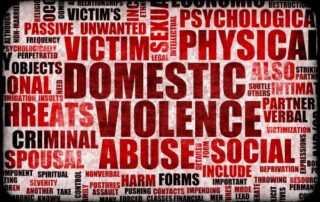-
Fathers' Rights Dallas Attorneys
Never Give Up!
-
Fathers' Rights in Texas
NEVER GIVE UP!

Child Abuse and Family Violence in Texas
The Texas Family Code defines Family Violence as an act by a member of the family or household against another member that is intended to result in physical harm, bodily injury, assault, or a threat on a family member in danger of imminent physical harm. This abuse is defined as physical injury that results in substantial harm or genuine threat of sexual, intercourse or conduct; or encouraging the child to engage in sexual conduct.
What does “family” include? Individuals related by blood or affinity, marriage or former marriage, biological parents of the same child, foster children, and members or former members of the same household (including roommates).
What about child abuse?
Some very interesting statistics:
-
A report of child abuse is made every ten seconds
-
More than four children die every day as a result of child abuse
-
70% of children that die from abuse are under age of 4
-
Child abuse occurs at every socioeconomic level within all ethnic and cultural lines and all religions and all levels of education!
-
Approximately 30% of abused and neglected children will later abuse their own children
Statistics re: childhelp.org
In Texas (2008 Crime in Texas.com), victims are primarily female (75%) and the offenders are primarily male (77%). The primarily weapon involved in family violence is physical force with the use of hands, feet or fists (78%).
How can you know if child abuse exists in a household?
Look for these most common child abuse indicators in children:
-
Injuries that are unexplained
-
Major and sudden changes in a child’s behavior
-
Return to earlier behavior: such as bed wetting, thumb sucking, and fear of dark or strangers or more serious language or memory problems
-
Serious fear of going home
-
Changes in eating or sleeping habits
-
Changes in school performance or attendance
-
Lack of personal care or hygiene
-
New risk taking behaviors
-
Inappropriate sexual behavior
If you are a family member, friend, teacher, or child-care giver of a child who has started displaying very different behaviors or showing injuries, it is imperative that you contact someone who can either help this child or prevent any more family violence from occurring in this child’s family. This child and family need help now!
 
Domestic Abusers – Know the Serious Warning Signs!
Domestic Violence is a very hot topic now. Major personalities from government, business, entertainment, sports, and religious sectors are protesting Domestic Violence and working to help create stronger laws to protect the victims of such violence.
If you are a Victim of Domestic Abuse, you must fight back! No one has the legal right to physically, mentally, or verbally abuse another individual! If you are a relative, friend or acquaintance of a potential victim or victims, please look for warning signs of abuse being committed on these people, asset legal defense on this conduct, and report your findings to the police.
Often victims are so mentally and verbally abused, they do not have the strength to defend themselves or their family. Truly be a friend and help to protect their lives by reporting any fact based suspicion of abuse to the proper authorities.
Some warning signs to look for in an abuser or a potential abuser’s conduct in a relationship:
Push for Quick involvement
A victim often has known or dated the abuser for a brief period of time before getting engaged or living together. The abuser pressures the victim for an exclusive commitment immediately.
Jealousy & Controlling Behavior
An abuser will equate jealously with love and controlling behavior to concern for the victim. The abuser becomes jealous of time spent with others. The abuser may call the victim frequently during the day, drop by unexpectedly, refuse to let the victim work, check the car mileage, or ask friends to watch the victim. As the behavior progresses and the situation worsen, the abuser may assume all control of finances or prevent the victim from coming or going freely.
Unrealistic expectations
An abuser expects the victim to be the perfect partner, and to frankly, without error, meet his or her every need.
Isolation
An abuser will attempt to isolate the victim by severing the victim’s ties to outside support, relationships, and resources. The batterer will accuse the victim’s friends and family of being “trouble makers.” The abuser may block the victim’s access to use of a phone, car, and also discourage the victim from working. No outside contact with the rest of the world.
Playing the Victim
An abuser will blame and project upon others for all problems shortcomings. Someone is always out to get the abuser or is an obstacle to the abuser’s achievements.
Blames others for feelings
An abuser will use feelings to manipulate the victim. Common phrases to look for: “You’re hurting me by not doing what I want.” “You control how I feel.”
Hypersensitivity
An abusive person is easily insulted, claiming hurt felling when he or she is really mad.
Cruelty to animals or children
This is a person who punishes animals brutally or is insensitive to their pain. The abuser may also expect children to perform beyond their capability and use physical force if a child cannot comply. 65% of abusers who beat their victims will also abuse children.
“Playful” use of force in sex
This behavior includes restraining partners against their will during sex, acting out fantasies in which the partner is helpless, initiating sex when the partner is asleep, or demanding sex when the partner is ill or tired. The abuser may also find the idea of rape exciting.
Verbal abuse
Constantly criticizes or says cruel things, degrades, curses, or calls the victim bad names. Sleep deprivation could be involved with relentless verbal abuse.
Rigid sex roles
The abuser will expect the victim to serve, obey and remain home to serve on the abuser
Sudden Mood Swings
Explosive behavior and moodiness, which can shift quickly from sweet to violent in minutes.
Past battering
An abuser will beat any partner if the individual is involved with the abuser long enough for the cycle of abuse to begin.
Threats of violence
This consists of any threat of physical force meant to control the partner. Most people do not threaten their mates but an abuser will excuse this behavior by claiming “everyone talks like that.”
Physical force during an argument
This may involve an abuser holding down the victim, blocking escape routes and physically restraining the victim from leaving, pushing or shoving. Holding someone back in order to make demands, such as “You will listen to me!” is also a show of force.
NACOL LAW FIRM P.C.
8144 Walnut Hill Lane
Suite 1190
Dallas, Texas 75231
972-690-3333
Office Hours
Monday – Thursday, 8am – 5pm
Friday, 8:30am – 5pm
OUR BLOGS
- About Dallas Attorney for Fathers Rights (3)
- Addictions and Divorce (2)
- Child Custody (20)
- Child Support For Fathers (10)
- Division of a Business (2)
- Divorce Checklist (9)
- Domestic Violence (8)
- Filing for a Divorce (9)
- Grandparents Rights in Texas (2)
- High Conflict Divorce (3)
- Impact on Children (7)
- Interstate Jurisdiction (9)
- Mediation (1)
- Modification Orders (2)
- Parent Alienation (15)
- Parental Rights (3)
- Paternity (16)
- Possession of Children (30)
- Prepare for Your Divorce (11)
- Property and Asset Division (25)
- Protective Orders (4)
- Social Networking (6)
- Special Needs Children and Divorce (2)
- Spousal Support (6)
- Stay At Home Dads (3)
- Tax Exemptions & Deductions (1)
- Texas Confidentiality Laws (1)
- Texas Prenuptial Agreements (3)
- UPDATE! New Texas Laws (9)
- Videos on Fathers Rights (14)
- Wills and Trusts (3)
- You Tube – Itunes for Fathers Rights Dallas (1)
SEARCH
JOIN OUR NETWORK

Attorney Mark A. Nacol is board certified in Civil Trial Law by the Texas Board of Legal Specialization



